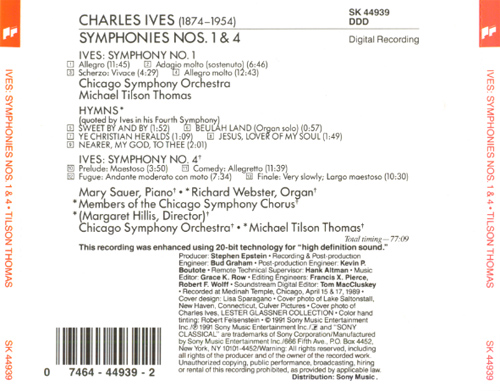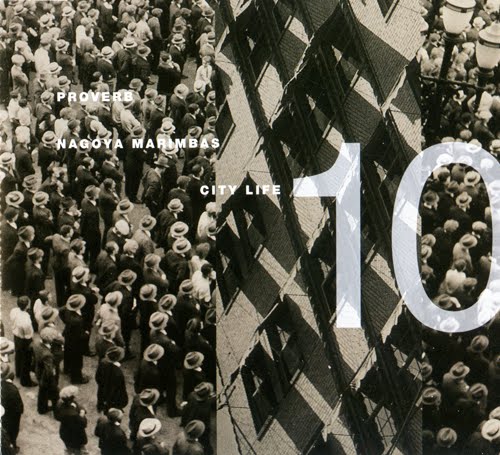The first item on the program here is, as the potential buyer may have guessed, an orchestral transcrption of Charles Ives' Piano Sonata No. 2, known as the Concord Sonata. But it requires a little more explanation. Orchestrator Henry Brant was a Canadian-American composer of an experimental bent who became, one learns from the booklet, "obsesssed" with the Concord Sonata and worked on an orchestral version in his spare time for the startlingly long period of 36 years, from 1958 to 1994. Further, he did not try to turn it into another Ives symphony, as the title might imply, "but rather to create a symphonic idiom which would ride in the orchestra with athletic surefootedness and present Ives' astounding music in clear, vivid, and intense sonorities." The result is quite unusual: not exactly Ivesian, but wholly absorbing in this reading by the eternally fresh Michael Tilson Thomas and the San Francisco Symphony. Brant's version is something like a guided tour through the work, with the swirling flow of musical existence pared away from the sonata's special features. The recurring references to Beethoven's Symphony No. 5 in C minor, Op. 67, are pointed up in this version, and the evocations of vernacular American music (hear the brass band passages) that are part of the torrent in the piano version are here restored to something like their original sounds. Again, it's not exactly Ives, but the Concord Sonata has a way of bursting over its pianistic confines anyhow; there is an optional flute part for the finale that is too rarely performed. The second piece on the program is likewise underperformed, Copland's short three-movement Organ Symphony of 1925 is perhaps the one that most clearly reflects his own personality among his early works. Written in an idiom that clearly owes much to Copland's recent studies in Paris, it nevertheless works in big lyrical tunes and rollicking fun. Tilson Thomas and organist Paul Jacobs give the work its due and are sensitive to the clever ways of balancing the organ with orchestral textures. A highly enjoyable album of unusual Americana. by James Manheim
Charles Ives (1874-1954)
A Concord Symphony (50:05)
Orchestrated By – Henry Brant
Aaron Copland (1900-1990)
Organ Symphony (27:02)
Organ – Paul Jacobs
Orchestra – San Francisco Symphony
Conductor – Michael Tilson Thomas
























.jpg)
.jpg)




